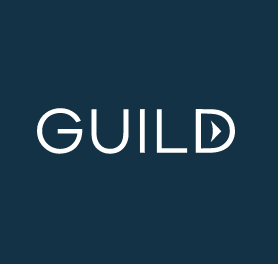Founder:
Rachel Carlson, Co-Founder and Chief Executive Officer
Venture:
Guild https://www.guildeducation.com/
Meet Rachel and Guild here:
Venture Description:
Guild is a “Career Opportunity Platform” that provides a space for employers to design and deliver meaningful, mutually beneficial educational opportunities for their employees. Guild is a one-stop shop for enabling access to personal and professional learning programs for teams and simplifies the often onerous task of providing education benefits in the workplace. Guild works with employers to build impactful educational programs for their staff, identify relevant certificate and degree programs, and provide ongoing support for employees through one-on-one career coaching. This organization was built out of a desire to “provide every employee access to learning and career growth, drive meaningful business outcomes for employers, and streamline the historically cumbersome administration of education benefits.” Current clients include the Walt Disney Company, Walmart, and Discover.
Founder Bio:
Rachel Carlson completed an MBA and an MA in Education at Stanford University and went on to work for organizations such as American Honor (an organization that coaches college students), a couple of large consulting firms, and the Obama Administration. She also created an app called Student Blueprint while at Stanford to help college students find jobs. In 2015, she co-founded Guild with a classmate, and by 2019 the company was valued at 1 billion dollars. Rachel clearly is invested in education and has done an incredible job building Guild into the platform it is today, which is now seen as making a huge difference in many lower-income workforce communities (see this article from Time Magazine, including Guild in their list of top 100 influential companies in 2022). The Executive Leadership team has an incredible amount of relevant, credible expertise.
Reflections:
What I like most about Guild is its scalability, and its potential to make a huge impact across a huge demographic. I think Rachel saw a gap in workplace training and education-benefits, and quickly capitalized on it. Guild has worked with over 310,000 employees to help “build a more equitable workforce” and likely has made a significant impact in many workplace communities. Their target clients are large American corporations, so though the scalability is pretty impressive, it would be neat to see Guild support or sponsor programs for smaller organizations that also have employees in need of upskilling and career development.
Sources:
https://www.guildeducation.com/
https://time.com/collection/time100-companies-2022/6159465/guild-education/
https://en.wikipedia.org/wiki/Rachel_Romer_Carlson

The idea of debt-free education is INCREDIBLY important in America, especially given the cost of education is so much higher in the States compared to Canada. Couple that with the need for ongoing/lifelong education, and you definitely have a winner here. She also stated the added value of workers wanting to work at ‘low-skill’ jobs – now I have a reason to be a motivated employee at Walmart if they are supporting me to get training/certificate for a better job!
I think Rachel is a great role model as an entrepreneur. She seems authentically invested and motivated in her venture, and since she has experience with obtaining higher education she clearly has an understanding of some of the barriers that students encounter. Her idea is a fantastic solution to begin to meet an obvious need, so I can see why she has obviously been making great connections with the right people leading to features in Time and on CNBC.
I think Rachel found a real need in the skills/training and education that is needed in the workplace. As companies struggle to find employees, having a program that attracts high quality applicants is both a benefit to the employers as well as employees who desiring affordable education and training. The employers ensuring the growth of these employees in their upscaling programs benefits the company in the short term and long term growth. Rachel demonstrates not only her motivation in developing a large-scale company, but also her willingness to share these program benefits in low-income communities.